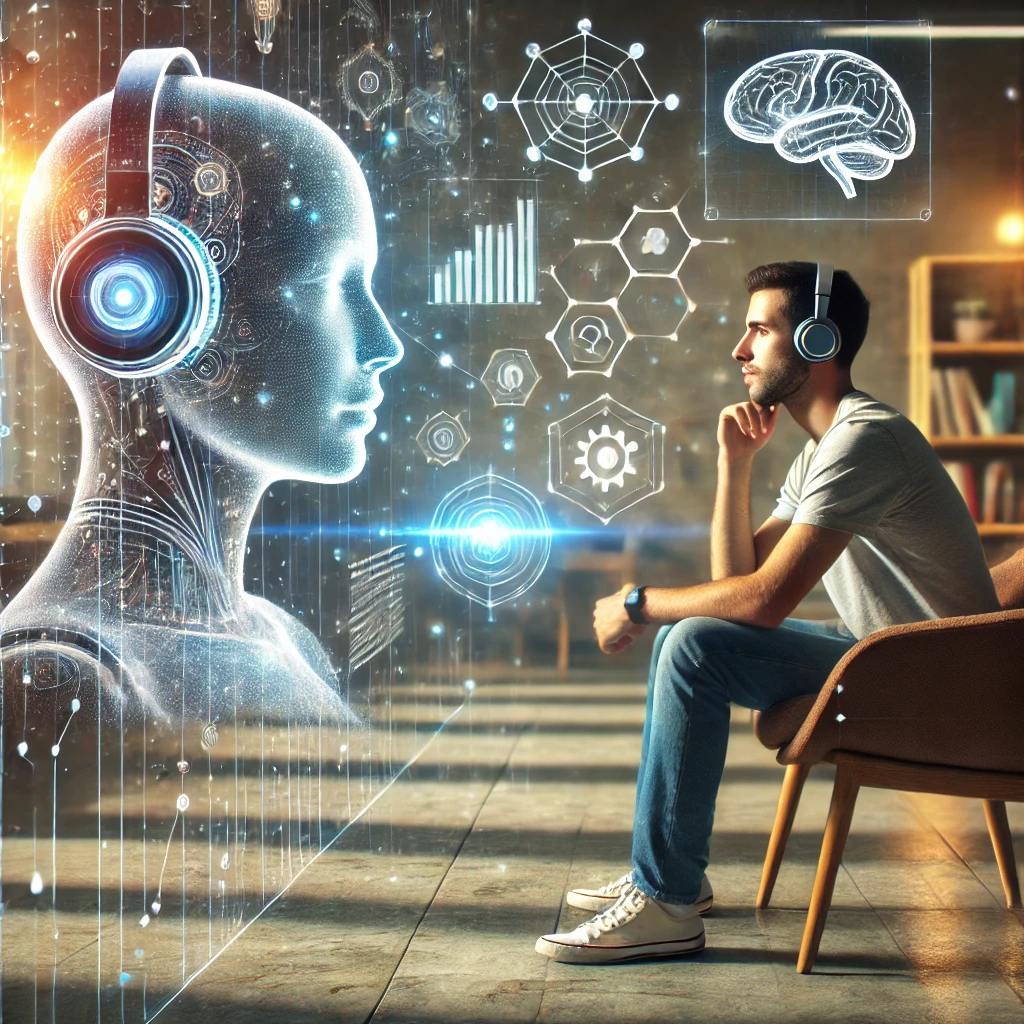Mental health is a critical aspect of overall well-being, yet many struggle to access affordable and effective resources. In recent years, artificial intelligence (AI) has emerged as a transformative tool in this field. By offering personalized support, 24/7 availability, and innovative solutions, AI is reshaping how we approach mental health.
This article delves into the role of AI in mental health support, highlights its benefits, and introduces leading platforms like DeepBrain AI that are making a difference.
The Role of AI in Mental Health Support
AI has proven to be a powerful ally in mental health care. By analyzing data and understanding human emotions, AI tools provide real-time, tailored support. While not a replacement for therapists, these tools act as complementary aids, empowering users to better manage their mental well-being.
Key applications of AI in mental health include:
- Early Detection: AI can analyze speech patterns, writing, and behaviors to identify early signs of anxiety, depression, or other mental health challenges.
- 24/7 Accessibility: Unlike traditional therapy, AI platforms are available any time, offering immediate help during moments of need.
- Personalized Care: Tools like DeepBrain AI adapt their responses to individual users, making mental health support more effective and relatable.
How AI-Powered Platforms Work
AI platforms for mental health, such as DeepBrain AI, utilize advanced technologies like natural language processing (NLP) and machine learning to interact with users. These tools are designed to simulate empathetic conversations while providing actionable guidance.
Key Features of AI-Powered Mental Health Tools:
- Emotional Analysis: Detects emotions through text or voice inputs to offer relevant advice or support.
- Behavior Tracking: Monitors user habits over time to identify stressors and suggest changes.
- Guided Exercises: Provides relaxation techniques, guided meditations, and mindfulness exercises tailored to the user’s needs.
Why AI is Transforming Mental Health Support
1. Accessibility for All
AI tools make mental health resources more accessible, particularly in underserved areas where therapists may be scarce.
2. Cost-Effective Solutions
AI-powered platforms often cost significantly less than traditional therapy sessions, making mental health care more affordable.
3. Anonymity and Comfort
Users often feel more comfortable discussing sensitive issues with an AI tool, reducing the stigma associated with seeking help.
4. Instant Feedback
AI offers immediate responses, ensuring support is available at any time—whether it’s during a late-night panic attack or a midday anxiety spike.
DeepBrain AI: Leading the Way in Mental Health Support
One standout in the AI mental health space is DeepBrain AI. This innovative platform combines cutting-edge technology with an empathetic design, offering a unique approach to emotional well-being.
What Makes DeepBrain AI Unique?
- Human-Like Interactions: Engages users in natural, conversational exchanges to make them feel understood.
- Custom Solutions: Adapts to each user’s specific emotional state and preferences.
- Scalability: Serves both individuals and organizations, ensuring widespread accessibility to mental health resources.
Applications of AI in Mental Health
AI-powered tools are being used in a variety of contexts, including:
- Virtual Therapy Assistants: Chatbots that offer cognitive behavioral therapy (CBT) techniques and stress management tips.
- Workplace Mental Health Programs: Helping employers provide mental health resources to their teams.
- Self-Care Apps: Personalized applications for meditation, journaling, and emotional tracking.
The Ethical Side of AI in Mental Health
While AI offers significant benefits, it also raises ethical concerns. Developers must ensure tools like DeepBrain AI adhere to strict data privacy standards, avoid algorithmic biases, and maintain human oversight for complex cases.
Practical Tips for Using AI Tools Like DeepBrain AI
- Start Small: Explore basic features like mood tracking or guided meditation.
- Combine with Therapy: Use AI tools as a supplement to professional mental health care.
- Track Your Progress: Regularly assess how these tools are helping you achieve your mental health goals.
The Future of AI for Mental Health Support
AI continues to evolve, promising even greater accessibility, empathy, and effectiveness in mental health care. Platforms like DeepBrain AI exemplify the potential of this technology, creating opportunities for individuals to take charge of their emotional well-being.
Conclusion: A New Era for Mental Health
Artificial intelligence is revolutionizing how we approach mental health support, bridging gaps in traditional care and providing innovative solutions. Whether you’re looking for real-time guidance, cost-effective options, or personalized care, AI platforms like DeepBrain AI offer a transformative approach.
Take the first step toward better mental health today by exploring how AI can support your emotional well-being.




